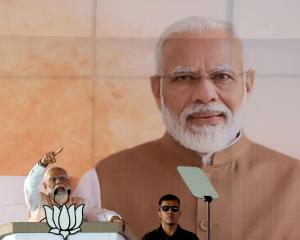Traditional commentators ridicule the power of blogging, but some in the blogosphere see signs that it is an influential participant in politics. Sandra Dickson reports.
For long-serving political journalist Colin James, blog content is "trite" and "trivial".
James - until recently a columnist for The New Zealand Herald, now writing for The Dominion Post - believes blogs in New Zealand currently have little, if any, impact on voter behaviour.
But others have taken a different view.
Canterbury University mass communications lecturer Donald Matheson says the internet, and blogging in particular, have challenged the "authoritative voice" of journalism by "watching the watchdog".
"The relationship between journalism and the big news organisations and the people reading those has changed. Good journalism should welcome that, a bit of critique, a bit of needling. It's a healthy thing."
One of the country's leading political columnists Matthew Hooton - who entered the blogosphere himself last election - argues this watchdog role may have influenced the outcome of the 2008 election.
"With Winston Peters, I think the blogosphere played a very important democratic role," says Hooton.
He points to the fact that Mr Peters had spent much time over many years drinking with senior journalists and says this tended to protect him from scrutiny.
"The blogosphere and Phil Kitchin at The Dominion Post sort of broke through that and forced the stories more into the open.
If he had got to 5%, then Helen Clark would have remained as Prime Minister.
But I wouldn't want to say there was a direct causal relationship."
Hooton put his managing directorship at top corporate and public affairs firm Exceltium on hold for two weeks before the election so he could concentrate on blogging at Policy Net.
New Zealand's most popular blogger, David Farrar, of Kiwiblog, agrees right-wing blogs in particular created a sense of crisis around Mr Peters, and says bloggers can be motivated to dig deeper, while journalists are under time constraints.
The Australian has described blogs as a waste of time, and called political bloggers sheltered academics and failed journalists.
In an online editorial in July 2007, the paper concluded: "So let's not mince words.
We just don't think many of our critics have any real clue about polling and very little practical experience of politics".
The comments related to the Australian federal election.
The Australian had predicted John Howard might retain power.
Political bloggers critiqued this by analysing political polls over the long term and got it right, predicting a win for Kevin Rudd's Labor Party months out from voting.
At Kiwiblog, ex-National Party parliamentary staff member David Farrar makes no secret of his political beliefs.
Matthew Hooton says of his popular colleague on the right: "David Farrar would be in daily contact with John Key and Bill English during an election campaign, I'm sure."
Farrar is the McDonald's of the New Zealand blogosphere, with daily readership of around 10,000, roughly the equivalent of the sales of newspapers in Wanganui, Rotorua or Gisborne.
He says two-way communication is one of the reasons blogs work.
The New Zealand blogosphere doesn't have the public audience to threaten mainstream media, with about 50,000 readers visiting political blogs each week, according to Tim Selwyn, of Tumeke.
He ranks political blogs by popularity each month, and says at these numbers blogging is an elite form of influence, not a mass form, despite its latent capacity.
This elite influence is largely through mainstream media, keeping journalists on their toes, providing a broader range of commentary and, occasionally, breaking stories.
Most journalists read political blogs for amusement, information and feedback, according to Dominion Post reporter and chairman of the Parliamentary Press Gallery, Vernon Small.
"In its infancy it probably had more impact, because we weren't used to that level of feedback.
"There was a time, maybe 18 months or so ago, when the Electoral Finance Act was being debated a lot and the blogosphere was really going crazy about that. It was very hard not to read it as a journalist and pick up on some of the stuff."
Left-wing political commentator Chris Trotter says there is no doubt mainstream journalists follow the blogosphere.
"Whether they believe themselves to be influenced by blogs or not, I think they are. You can't un-know what you've just read."
But stories do not tend to "break" into mainstream media from the blogosphere very often, says Small.
Farrar says he gets 12 to 15 emails a day offering him blog ideas.
"Sometimes, one or two of them might be from someone who's involved in a party. I probably get more of those from Act than from National, funnily enough."
Many, including Hooton, believe some blog sites are used to float policy ideas.
"Kites get flown by serious politicians through Kiwiblog and The Standard, and so . . . to some extent they are the wider signals."
Political blog expert Dr Matheson says the blogosphere is not reinvigorating democracy in some radical, exciting way because successful bloggers are not your average citizen.
"A lot of the major bloggers . . . are people who already have some political or journalistic credentials.
"You can't really talk about an elite in New Zealand the way you can in the United States, but people who are already on the inside of the Wellington world or the political world tend to be the ones who are the major bloggers. So you get David Farrar or Russell Brown."
New Zealand's blogosphere is unashamed in its bias, with the majority of bloggers happy to tout openly for one party or another.
Alongside Kiwiblog and Whale Oil, openly supporting the Right, sit The Standard and Public Address, equally openly supporting the Left.
As online news outlets increasingly expect their political journalists to write blogs, the distinction between opinionated bloggers and non-overtly aligned journalists may become more blurred.
Dr Matheson says, in blogs, journalists' own political perspectives become more visible.
This does not necessarily reduce credibility, but it does undermine traditional models of objectivity.
"I think the subtle impacts of blogging on journalism may be the bigger ones in the long term," he says.
•Sandra Dickson is a student from Whitireia Journalism School.












